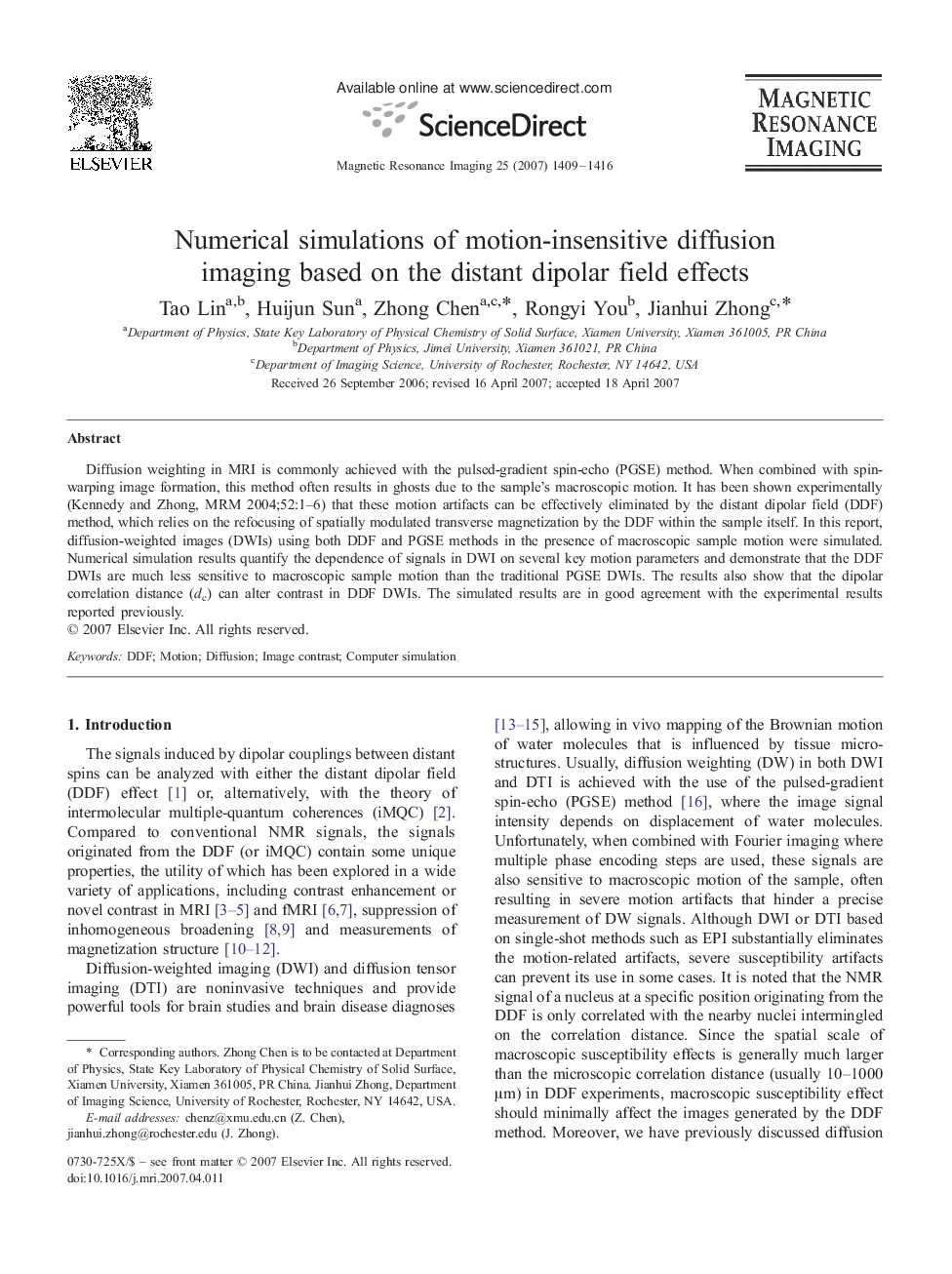| Article ID | Journal | Published Year | Pages | File Type |
|---|---|---|---|---|
| 1807692 | Magnetic Resonance Imaging | 2007 | 8 Pages |
Abstract
Diffusion weighting in MRI is commonly achieved with the pulsed-gradient spin-echo (PGSE) method. When combined with spin-warping image formation, this method often results in ghosts due to the sample's macroscopic motion. It has been shown experimentally (Kennedy and Zhong, MRM 2004;52:1-6) that these motion artifacts can be effectively eliminated by the distant dipolar field (DDF) method, which relies on the refocusing of spatially modulated transverse magnetization by the DDF within the sample itself. In this report, diffusion-weighted images (DWIs) using both DDF and PGSE methods in the presence of macroscopic sample motion were simulated. Numerical simulation results quantify the dependence of signals in DWI on several key motion parameters and demonstrate that the DDF DWIs are much less sensitive to macroscopic sample motion than the traditional PGSE DWIs. The results also show that the dipolar correlation distance (dc) can alter contrast in DDF DWIs. The simulated results are in good agreement with the experimental results reported previously.
Related Topics
Physical Sciences and Engineering
Physics and Astronomy
Condensed Matter Physics
Authors
Tao Lin, Huijun Sun, Zhong Chen, Rongyi You, Jianhui Zhong,
